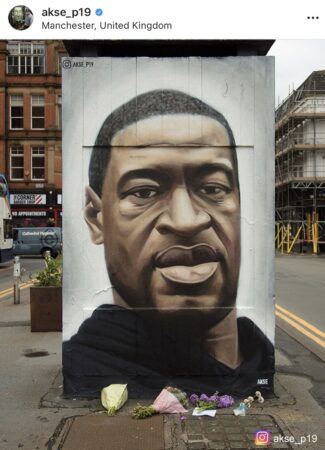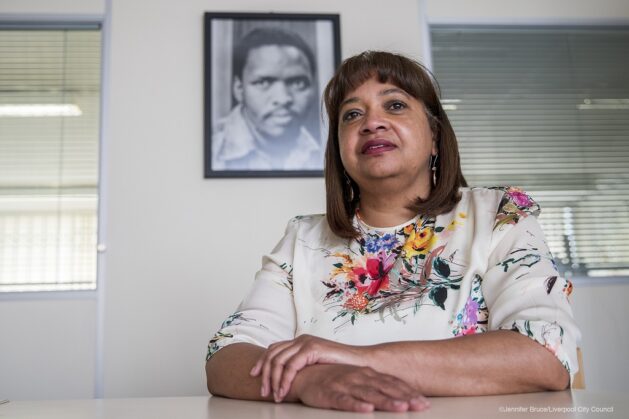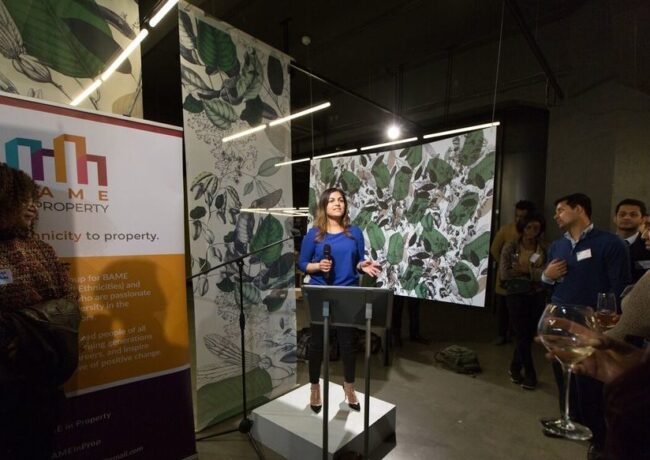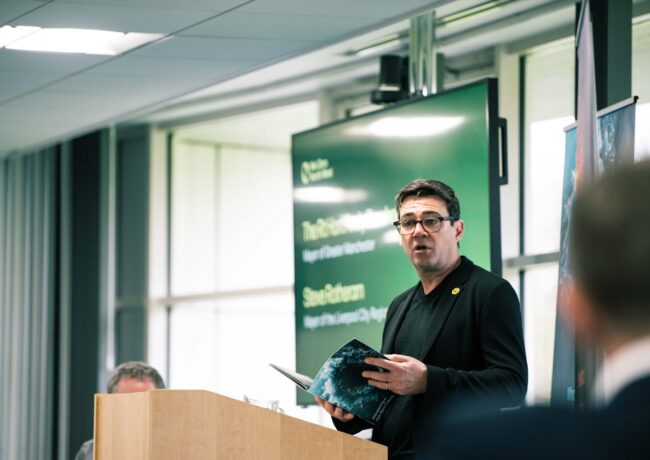Time for a more inclusive industry
Now is the time for the UK property industry to take bolder steps to improve the diversity of its workforce – whether in relation to race, gender, class, sexual orientation, mental health or physical ability.
In this series of articles, Place North West holds a microscope to a disproportionately white, male-dominated industry, reports on initiatives being undertaken to support under-represented groups, and calls on you, our loyal readers, to help change the status quo.
While this article was being typed, Manchester City Council was working to remove racist graffiti from a memorial to George Floyd, the black man killed by white American police during an arrest in Minneapolis in May.
The mural in Stevenson Square, painted by a local artist, had been in place for less than a month, and its defacement by an unidentified criminal was described as “sickening” by Manchester’s deputy leader, Cllr Nigel Murphy.
Thankfully, the mural was restored within 24 hours. But the destructive act was an expression of the outdated and unjust attitudes that led to the death of Floyd and other victims of racist violence, and sparked a global uprising that will not be quelled without positive action from across society.

George Floyd’s memorial in Manchester
The protests belie the sense of anger and injustice harboured by any group that feels itself to be marginalised. And such sentiments can often be traced back to family, school and working life, and the opportunities experienced or not.
There is clearly so much more work to be done to close the gaps, and, increasingly, it is not good enough to talk the talk. If things are to radically improve, businesses, academic institutions, government and the public must also walk the walk – which means working harder to ensure equal opportunities for all.
The UK property industry is woefully lacking in ethnic and gender diversity. Just 1.2% of people working in the built environment identify as black, Asian and minority ethnic (referred to at a national level by the rather dehumanising ‘BAME’ categorisation), according to a report by the Royal institute of Chartered Surveyors and consultancy EY in 2016.
The proportion does not even nearly reflect demographics – that year, 14% of the UK population were classified as BAME and the figure has risen to around 20% today.
In 2018, BAME in Property was founded by Priya Shah, a former account manager at Built Environment Communications Group, after she read the RICS/EY report. The forum’s aim is to help talented people of all backgrounds into fulfilling careers, and inspire businesses to enable this through their recruitment, internship, charitable and other channels.
The group also works with other diversity and industry groups including Women in Planning, Aspiring Women, Royal Town Planning Institute and British Property Federation.
Shah said she did not have access to more recent figures on BAME representation in the industry, and Place North West has asked RICS and EY if they intend to update their study.
Meanwhile, the report also showed that only 13% of the built environment workforce is female, while just 0.6% described themselves as having a disability.
Readers might point out that a lot has changed since 2016 – the #MeTooPay campaign last year on closing the gender pay gap was just one example of recent efforts taken to increase professional opportunities for women.
However, this year’s Real Estate Balance report commissioned by consultancy PwC found that just 22% of UK property companies’ board members were women compared to 78% men, an increase of just 3% since the report’s 2017 edition.
Real Estate Balance was established with the aim of seeing women in 33% of senior positions in property by 2020, and an ultimate goal of 50%, yet that has not been met.
Tough questions need to be asked about why the industry is failing to achieve racial, gender and other equality, and, in the meantime, we are urging our readers and their organisations to take action.
At Place North West, we want our events and news coverage to depict a more diverse range of talented professionals; to promote successes, and give people considering a career in property – or seeking to elevate their career – some inspirational role models.

Tracey Gore is chair of Liverpool’s Race Equality Taskforce
We are doing this by refining our events planning so that we even more proactively look to include female, BAME and other under-represented groups on our speaker panels. We will clearly set out our objectives in early dialogue with event sponsors and ask them to suggest talented and relevant people who would like to participate.
As well as doing our utmost to avoid all-white, all-male event panels, we will also look to celebrate diversity in our news stories and other editorial published on Place North West. Just this week, we reported on Liverpool’s appointment of Tracey Gore to its newly established Race Equality Taskforce, and on Manchester’s strategic development director Louise Wyman’s strategy for embedding inclusion into all aspects of placemaking.
But we cannot do all of this without your help. We are urging you to help us by sending in names of people we can consider as speakers at our events, and information on initiatives you or your organisation is undertaking to improve workplace diversity, give more people better access to the sector, and aid professional development.
We hope you enjoy our dedicated newsletter on the subject today, and we implore you to help Place North West help you, the industry, to do better on diversity.
Read the other articles in this series:




